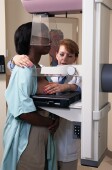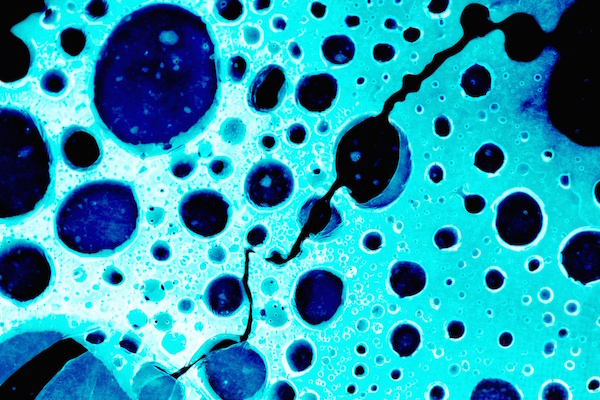
FRIDAY, July 23 (HealthDay News) — Women of African heritage bear a greater risk for a more aggressive and difficult-to-treat form of breast cancer, new research suggests.
In the study, doctors from the University of Michigan Comprehensive Cancer Center looked at
three groups of breast cancer patients: African-American women, white women and African women.
More than a quarter of the African-American women with breast cancer had the so-called “triple negative” version of the disease — a designation that refers to a trio of affected hormone receptors that can sometimes serve as targets for treatment.
By comparison, just 16 percent of the white women with breast cancer had this particularly aggressive version of breast cancer, while among African women that figure skyrocketed to 82 percent.
The observation builds on previous evidence that while black women face a generally lower risk for breast cancer in general, when the disease does strike, it does so at an earlier age and with more deadly results.
“The most significant recent advances in breast cancer treatment have involved targeting these three receptors,” study author Dr. Lisa A. Newman, director of the Breast Care Center at the cancer center, explained in a university news release. “But these treatments do not help women with triple-negative breast cancer. Outcome disparities are therefore likely to increase, because fewer African-American women are candidates for these newer treatments.”
Newman and her colleagues reported their findings online July 13 in the journal Cancer.
According to the American Cancer Society, nearly 200,000 Americans will face a breast cancer diagnosis this year, and upwards of 41,000 will ultimately die from the disease.
The findings regarding the specific risk for developing triple-negative cancer stems from an analysis involving nearly 600 black women and more than 1,000 white women, all of whom were being treated for breast cancer at the Henry Ford Health System in Detroit. Another 75 breast cancer patients from the African country of Ghana were included in the study.
“African ancestry might be associated with other links to hereditary predisposition for particular patterns of breast cancer,” Newman added. “We hope that by studying breast cancer in African and African-American women we can identify biomarkers that might be useful for assessing risk or treating triple-negative breast cancer.”
More information
For more on triple-negative breast cancer, visit BreastCancer.org.

